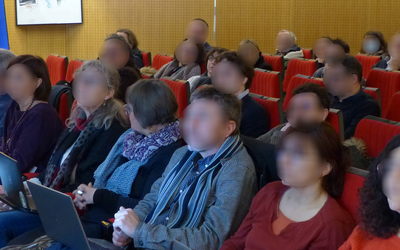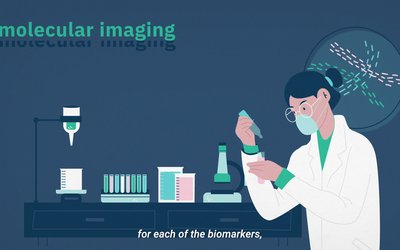Metal complexes and MRI
Design of innovative probes for medical imaging and methodological developments in small animal MRI.
Our chemistry focuses on the design, synthesis and characterisation of metal complexes for applications in MRI or multimodal imaging. We apply the principles of coordination chemistry to design molecular imaging probes. We are also interested in fundamental aspects such as optimising the stability and kinetic inertia of complexes and understanding the efficiency of paramagnetic systems in MRI. We work on all steps of development: (i) the design and synthesis of new chelating agents, (ii) complete physicochemical characterisation of metal complexes and rationalisation of MRI efficiency in relation to chemical structure, (iii) estimation of the stability and kinetic inertia of complexes, which are essential in relation to in vivo toxicity, (iv) in vitro/in vivo evaluation of MRI contrast agents.
- MRI contrast agents for the detection of metal cations, in particular Zn(II) and Cu(II).
- Transition metal complexes to replace Gd.
- Imaging probes for the selective detection of amyloid peptides.
- Multimodal probes (MRI and SPECT) targeted at proteins of choice such as netrin or collagen.


Sarah Hostachy Conference
Published on July 26, 2025

Chemistry for Molecular Imaging Movie
Published on April 13, 2025

